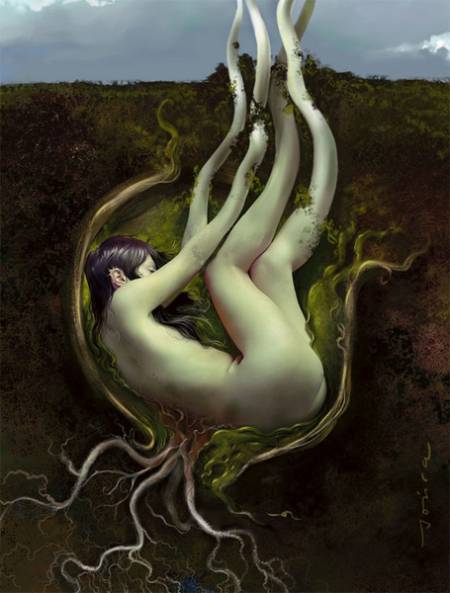

Happiness is in the balance
The human couple is like a microcosm where cultural ideas penetrate and then pass to the children. A kind of portal in space and time that, like everything that responds to society, usually changes its model as the times change.
Author:

Mileyda Menéndez Dávila |sentido@juventudrebelde.cu
Published: Friday 13 April 2012 | 08:52:24 pm. Updated: Thursday 21 September 2017 | 09:34:28 pm.
Translated and edited by Walter Lippmann for CubaNews.

Desire is fire, and to grow it needs space. Author: internet Posted: 09/21/2017 | 05:19 pm
“Sexuality is a window to enter society,” says Belgian psychologist and anthropologist Esther Perel, with whom we spoke last January during the Sexology 2012 congress.
This New York-based therapist defines the human couple as a microcosm where cultural ideas penetrate and then are passed on to the children. A sort of portal in space and time that, like everything that responds to society, tends to change its model as the times change.
In her opinion, modern marriage left behind the old sexuality of reproduction and obligation to open the way to a new sexuality centered on erotic desire and governed by principles forged with Romanticism, that cultural movement that transformed the world from the 17th century onwards.
However, that romantic notion of the “passionate marriage” that is so much pursued today carries in its essence a historical contradiction: passion and commitment is a dialectical pair that we try to reconcile in order to satisfy in one person very different needs, such as adventure and stability, surprise and comfort.
“Today we women ask for more… and we divorce more because we get disillusioned very quickly. Although we still see a partner as a partner to raise a family and achieve economic security, in this century we are looking above all for our man to be our friend, our lover, our confidant.”
Modern women lead a life more open to individual projects, to social protagonism, to the decision to have fewer descendants and to fulfill themselves outside the home, but this takes a heavy toll on their intimacy, she says.
“It is an existential dilemma that all couples who manage to be stable go through: eroticism is our way of feeling alive, but without realizing it, we redirect it towards those who follow in our footsteps in the family and we neglect our erotic world,” she says.
“Many women stop grooming themselves to look beautiful, but they get satisfaction from watching their daughters do it. Others stop ‘taking care’ of their husbands to be jealous of their teenage son, and most adult married couples barely organize outings a couple of times a year, yet financially and materially support the weekly recreation of their young offspring.”
Sexually “savvy”
Esther has traveled to dozens of countries studying couples in their own historical and cultural context to try to answer those questions that everyone has ever asked: “Why is the forbidden so erotic, and after it is obtained it no longer excites us? Why is everyday sexuality, done with love, usually not as passionate as a casual encounter? Why does sex make children, and then children kill sex?”.
In fluent Spanish and full of metaphors, Esther talked to several Cuban journalists about the success of her book Erotic Intelligence, published since 2007 by several publishing houses, in which she tries to discuss these questions. [In English, the book is called Mating in Captivity]
According to what she told us, the term came up as a joke from her husband (she has been married for 30 years), but then they both made sense of it: if we are already talking about emotional intelligence, why not accept that sex demands its own share of knowledge and intuition?
In this day and age, a sexually “intelligent” woman with a secure attachment style looks for men who want her, not need her.
The difference is easy to detect, Esther assures: “In the first case they say “I love you”, while in the second case they ask “Why don’t you love me?”, even when you have given all the proof of love they have asked for throughout the relationship… And this is also true the other way around: emotionally dependent women who demand too much from their partners.
The diversity of manifestations of this dependence is above all cultural: in women, open complaint predominates; in men, it is more hidden or it emerges with a lot of aggression, especially in countries with a macho tradition.
Desire is fire, and to grow it needs space. Things will go better in many marriages when they understand that this is not a conflict to be resolved, but a paradox to be managed, like so many in this century: “You can be happy in a stable marriage, but the way to that happiness is the balance between individual freedom and mutual commitment”.
Be smart with your partner
If you want to apply erotic intelligence to your life as a couple, here are several tips discussed on the Terra site as a marital “survival list”:
-Be interested in your partner’s hobbies and show him/her what you like.
-Remember that you are not Siamese twins, you don’t have to go everywhere together.
-Work activities must be compatible for life as a couple.
-Avoid erosion in communication: get out of the house to talk about intimate things.
-Don’t fight against your partner’s quirks, incorporate them into your routine.
-Don’t try to change the other person, accept their bad side along with their good side.
-Balance the balance of roles, don’t try to be always and both the dominant voice.
-Put yourself in your partner’s shoes before judging why he/she acts one way or another.

You must be logged in to post a comment.